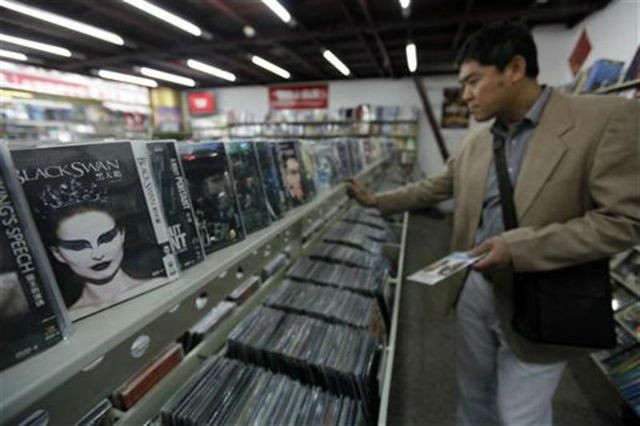
China plans to change the law to crackdown on "malicious" trademark registrations, state media said on Monday, after a series of cases in which well-know international brands and individuals have had their names or copyright misused.
Foreign governments, including the United States, have for years urged China to take a stronger stand against intellectual property rights violations on products ranging from medicines to software to DVD movies.
Basketball legend Michael Jordan is one of the latest to accuse a company of using his name without permission, and French luxury group Hermes International SCA (HRMS.PA) and Apple Inc (AAPL.O) have faced trademark problems too.
The proposed amendment will offer protection to major international brands, giving copyright owners the right to ban others from registering their trademarks or from using similar ones, even if such trademarks are not registered, the official Xinhua news agency reported.
"The draft is intended to curb the malicious registration of trademarks," Xinhua said.
he country's legislature - which performs a largely rubber stamp role - will discuss the amendment this week, it said, without saying when the new rules could be put in place or providing other details.
The move comes after basketball star Michael Jordan filed a lawsuit in China in February against a Chinese sportswear company, accusing the firm of unauthorized use of his name.
The Naismith Memorial Basketball Hall of Fame recipient and former Chicago Bulls star said that Qiaodan Sports, a company located in the southern Fujian province, had built its business around his Chinese name "Qiaodan" and jersey number without his permission.
The lawsuit has yet to go to trial, Chinese media have reported.
France's Hermes International SCA (HRMS.PA) has also had problems in China with its trademark, and in July Apple Inc (AAPL.O) agreed to pay $60 million to Proview Technology (Shenzhen) to end a protracted legal dispute over the iPad trademark in China.
China has insisted it is serious about tackling intellectual property violations.
© Thomson Reuters.




